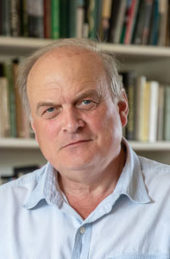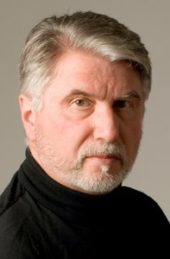What first attracted you to the period or periods you work in?
I remember, as a child, hearing tales of military derring-do round the dinner table. My Dad loves reading military history, and often discusses the great battles and commanders with friends and family. I suppose I first got interested as a means of getting his attention. But I quickly realized that I too was hooked, particularly on the wars of the Victorian period and the 20th century. What fascinates me about war, and the study of war, is that it seems to encompass the full spectrum of human behaviour: both good and bad.
Can you tell us a little more about how you research? Has the process changed over the years?
When I started, it was an incredibly long-winded business, laboriously copying archival documents on my ancient laptop and using the phone book to track down veterans. The internet, smart phone apps and digitisation have revolutionized the business of historical research. For my last book I even interviewed some people on Skype/Zoom. But to research properly, you still need to wade through endless documents you might never use on the hunt for that tiny glimmer of gold that will change everything.
The common phrase is that history is written by the victors. Do you think this is true?
Yes, of course, but not for ever. The point about history is that it’s a ‘live’ subject, constantly changing, and there’s always room for a different interpretation. The more critical (some would say overly critical) reassessment of British imperial history is a case in point. In the 19th century, a man like General Henry Havelock was a hero for helping to put down the Indian Mutiny. Now, to many, he’s a villain and there are calls to rename schools and take down his statue in Trafalgar Square. It is, however, important to see him in context, and not judge him by today’s mores. Few major figures of the 19th Century appear acceptable, much less saintly, to modern eyes.
Are there any historians who helped shape your career? Similarly, can you recommend three history books which budding historians should read?
I admire Gitta Sereny, the Hungarian born author of books like Into That Darkness, a study of death camp commandant Franz Stangl, and a brilliant biography of Hitler’s architect Albert Speer. The historian who has had the most positive influence on my career is Sir Hew Strachan, the former Chichele Professor of the History of War at Oxford. Hew supervised my PhD at Glasgow, where he was Professor of Modern History, having convinced me that a doctorate was worth having, even though I had already published five history books. He was right. Budding historians should read Herodotus’ The Histories, Edward Gibbon’s The History of the Decline and Fall of the Roman Empire, and, more recently, NAM Rodger’s The Command of the Ocean, the second volume of his magisterial naval history of Britain.
If you could meet any figure from history, who would it be and why? Also, if you could witness any event throughout history, what would it be?
The figure would be Winston Churchill. He’s been attacked recently for his outdated views of empire and race, and it’s quite right that they’re taken into account. But they were also of their time and, in my view, are dwarfed by the extraordinary contribution he made to this country when, as wartime prime minister, he kept us in the fight against Nazi Germany when other premiers would have sued for peace and condemned the country to life as a vassal state. The event would be the Battle of Waterloo: the last great battle between European powers that could be witnessed in its entirety from a suitable vantage point (say, next to Wellington on the Mont Saint-Jean ridge).
If you could add any period or subject to the history curriculum, what would it be?
The subject would be the British Empire. We can’t hope to understand who we are as a nation, and how we got there, without a proper knowledge of our imperial history since the 16th century, warts and all. There were a lot of bad things done in our name, as is the nature of empire, but we should also remember the positives.
If you could give a piece of advice to your younger self, either as a student or when you first started out as a writer, what would it be?
Treat all history as a damn good story. There is a tendency among young writers, and I was no exception, to get bogged down in detail because you’ve done the research and you don’t want to leave anything out. That is a mistake. The best history writing moves at pace and focuses on people.
Can you tell us a little bit more about the project you are currently working on?
I’ve just finished the first authorized history of the SBS in any era, but in this instance the story of how the famous maritime special forces unit was created in World War Two. It was a huge privilege to work on this project, to meet current and former members of the unit, and to gain access to the secret SBS archive in Poole. The book will be published in September 2021. Meanwhile, I’ve started work on Devil Dogs, a book about a company of US Marines fighting its way through the Pacific.






